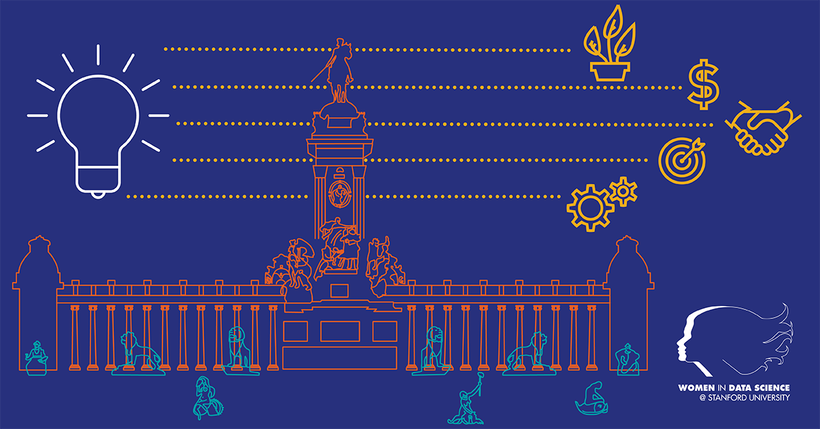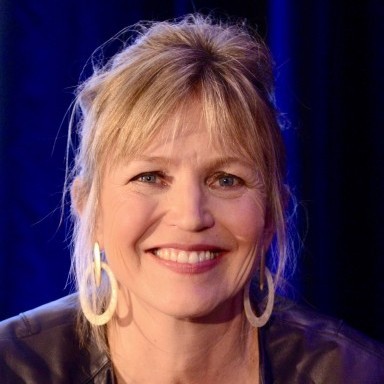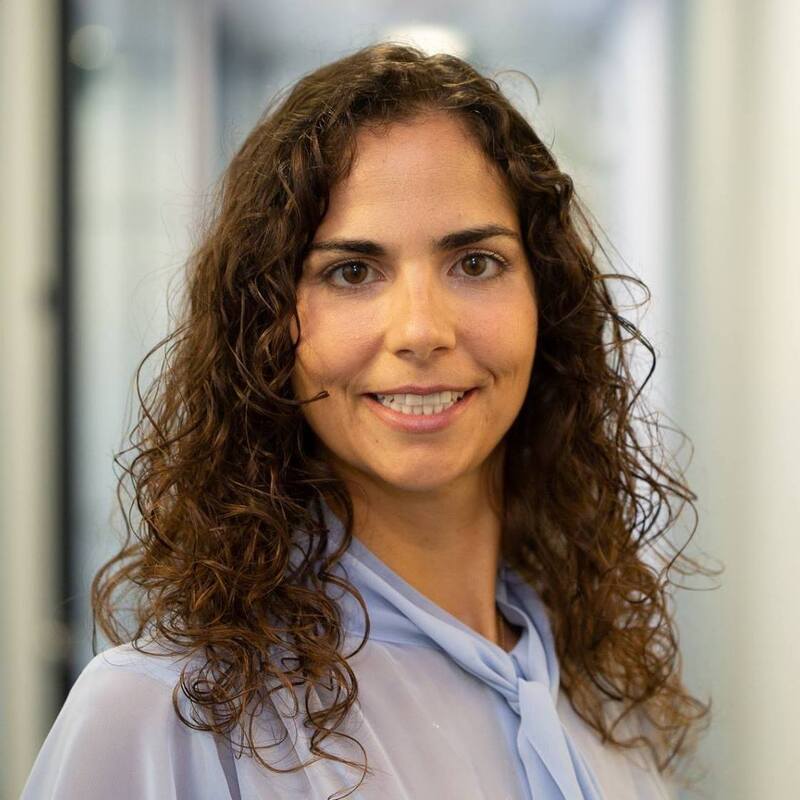Lessons Learned Building a Data Science Startup

Highlights
Montse Medina was pursuing her PhD at Stanford’s Institute for Computational and Mathematical Engineering (ICME) when she realized she had a great idea for a company. She left her graduate program to found Jetlore, a prediction platform that empowers retailers with AI-driven content, which was acquired by PayPal in 2018. Montse has since moved back to her native Spain as a partner for Deloitte where she is responsible for their advanced analytics and asset-enabled business.
Montse discusses her lessons learned growing Jetlore with Margot Gerritsen, Stanford Professor and host of the Women in Data Science (WiDS) Podcast.
She started the business with her thesis advisor and was supported by Stanford’s incubator program StartX that helps students start companies and introduces them to investors. Though they were able to raise money, there were plenty of challenges getting the business off the ground. At first, they didn’t want to tell anybody what they were doing. “That already shows that we were very naïve. If we had told people, they would have given us advice, we could have adapted faster,” she says.
The technology was great but it was difficult to find the right market fit. They had to listen and pivot a lot. She had to learn how to fail, something she was not used to doing. Failure was not in her vocabulary and that was a big lesson. They had to fail to adapt, and the most important thing was to adapt fast.
She believes that entrepreneurship is also about luck. “You could be doing everything right and working super hard and being the best entrepreneur, but if you don’t get some luck, you won’t get the reward,” she says. And if you don’t get that luck at first, she says talk to others, listen to the environment to understand why, and then adapt fast.
Montse says it’s no longer necessary to be in Silicon Valley to start a successful company. She believes Silicon Valley is not a place; it’s really a network. For those outside of Silicon Valley who want to be part of that network, she recommends first finding successful entrepreneurs in your region as they likely will have some connections to Silicon Valley. She thinks there are going to be a lot more startups coming from all over the world.
It’s important to keep all your options open. When asked about her biggest dreams for herself ten years from now, she replied: “I don’t like to box myself into a dream because that forces me into that. I think that there are so many great things that can happen to you just by letting things flow. If I were to think about a goal, then that would probably close other doors that are opening on my sides and windows that I probably would neglect.”

About the Host
Margot Gerritsen
Stanford Professor [Emerita] Margot Gerritsen is the Executive Director and co-founder of Women in Data Science Worldwide (WiDS) and born and raised in the Netherlands. Margot received her MSc in Applied Mathematics from Delft University of Technology before moving to the US in search of sunnier and hillier places. In. 1996 she completed her PhD in Scientific Computing & Computational Mathematics at Stanford University and moved further West to New Zealand where she spent 5 years at the University of Auckland as a lecturer in Engineering Science. In 2001, she returned to Stanford as faculty member in Energy Resources Engineering. Margot was the Director of the Institute for Computational & Mathematical Engineering (ICME) at Stanford from 2010-2018 and the Senior Associate Dean for Educational Affairs in Stanford’s School of Earth Sciences from 2015-2020. In 2022, Margot took Emerita status to devote herself to WiDS full time. Margot is a Fellow of the Society of Industrial & Applied Mathematics, and received honorary doctorates from Uppsala University, Sweden, and the Eindhoven University of Technology in the Netherlands. She now lives in Oregon with her husband Paul.
Connect with Margot Gerritsen on Twitter (@margootjeg) and LinkedIn.
Find out more about Margot on her Stanford Profile.


